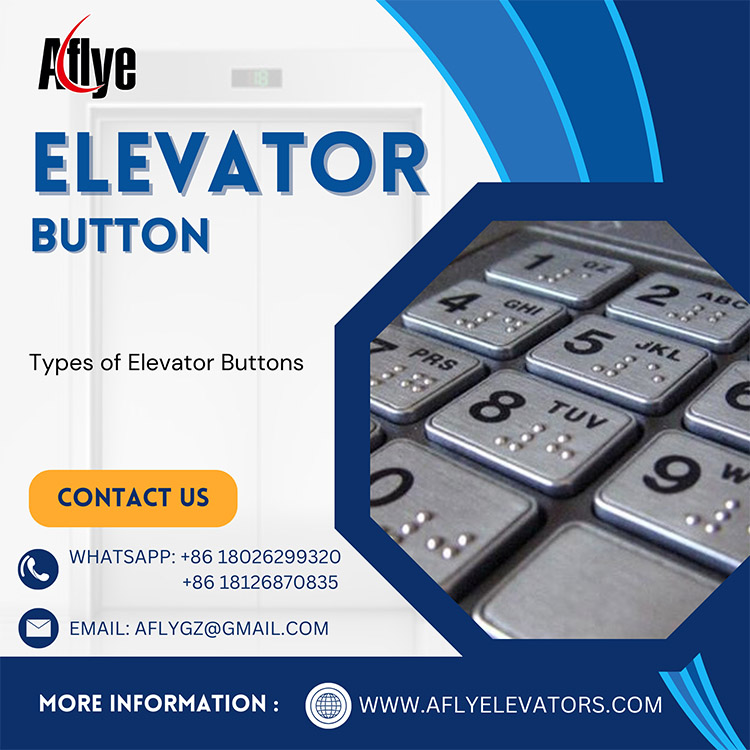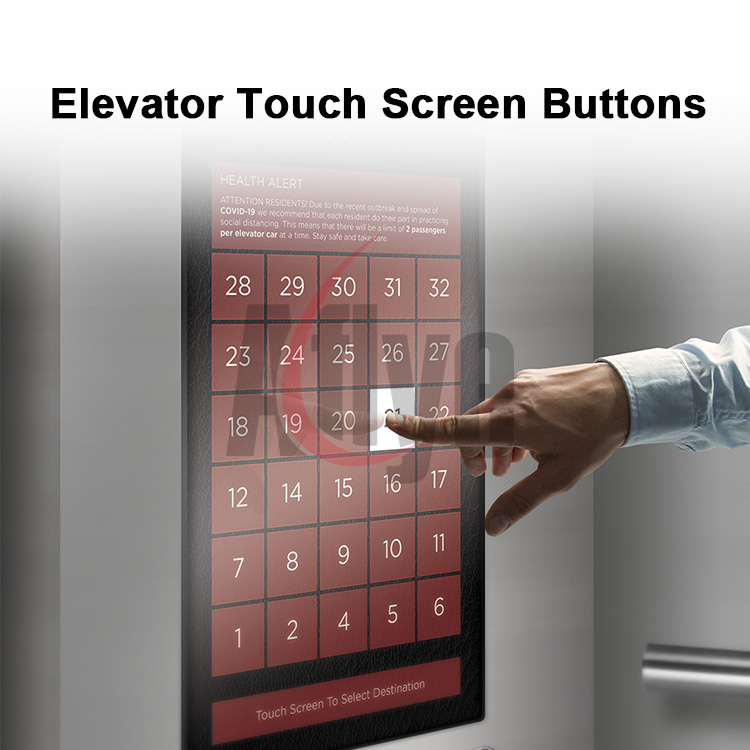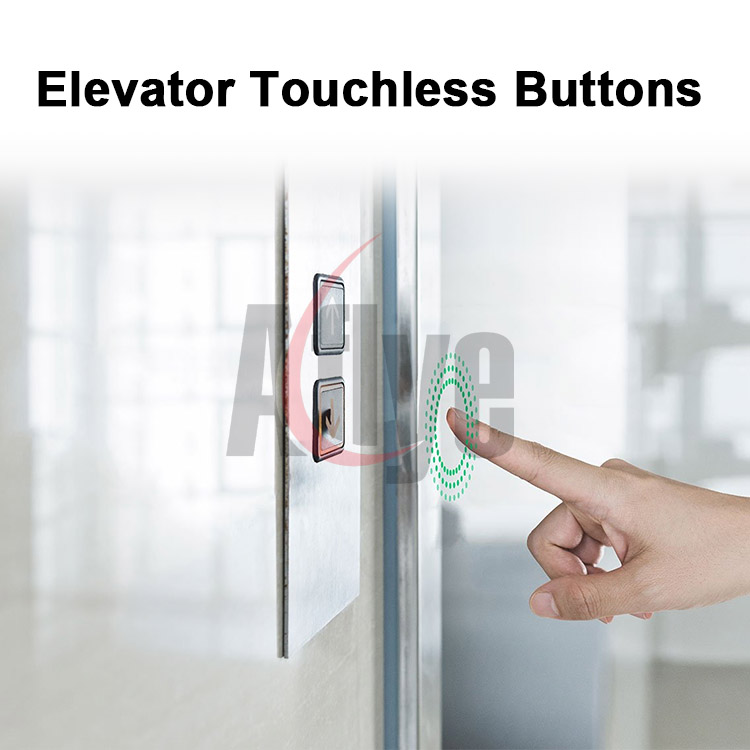Types of Elevator Buttons
Elevator buttons are an essential part of the elevator control system, responsible for enabling interaction between passengers and the elevator. With the advancement of technology and diversification of user needs, elevator buttons have evolved from traditional mechanical designs to modern smart touch panels, offering improved functionality and design. Today, let’s explore the common types of elevator buttons and their features.

- Elevator Mechanical Buttons
Mechanical buttons are the earliest type of elevator buttons. They are typically made of metal or plastic and function through physical pressing.
Simple operation: Clear tactile feedback, easy to use.
Highly durable: Resistant to wear even after long-term use.
Applications: Ideal for older buildings or projects with limited budgets.

- Elevator Membrane Buttons
Membrane buttons are made of thin film materials and usually display symbols or text on the surface. Pressing the button generates an electronic signal.
Sleek design: Smooth surface with a modern appearance.
Waterproof and dustproof: Suitable for environments with high hygiene standards such as hospitals and food factories.
Applications: Office buildings, shopping malls, hotels, and other modern environments.

- Elevator Touch Screen Buttons
Touch screen buttons use modern touch technology similar to smartphones. Users can simply tap the screen to operate the elevator.
Customizable interface: Can display additional information such as floor status, advertisements, or guidance messages.
Multi-functional: Can integrate calling, display, alarm functions, and more.
Applications: High-end buildings, hotels, airports, and shopping centers.

- Elevator Photoelectric Buttons
Photoelectric buttons use optical sensing technology. They do not require physical contact; signals are triggered when a finger approaches.
Contact-free operation: More hygienic and reduces cross-contamination risks.
Modern and stylish: Minimalist design enhances building aesthetics.
Applications: Hospitals, airports, commercial buildings, and hygiene-sensitive locations.

- Elevator Smart Buttons
Smart buttons integrate advanced technologies. In addition to basic floor control, they can connect with external devices via Wi-Fi, Bluetooth, etc.
Remote control: Can be operated via mobile apps or smart devices.
Smart features: Supports personalized settings and voice recognition.
Applications: Smart buildings, office towers, intelligent residential systems.
- Elevator Touchless Buttons
Touchless buttons use infrared sensing or NFC technology, allowing users to activate the button without touching it.
Hygienic and antimicrobial: Reduces physical contact, meeting public health requirements.
Energy-saving: Automatically activates through sensing, improving energy efficiency.
Applications: Public places with strict hygiene needs such as hospitals and schools.

Conclusion
Different types of elevator buttons are designed for different usage environments and requirements. From traditional mechanical buttons to modern smart and touchless buttons, each type has its own advantages. When selecting elevator buttons, factors such as building type, budget, usage frequency, and user needs should be considered.
A-FLY provides a full range of elevator button products, from standard classic models to advanced intelligent solutions, to meet various project needs and enhance safety and convenience in your elevator system.

